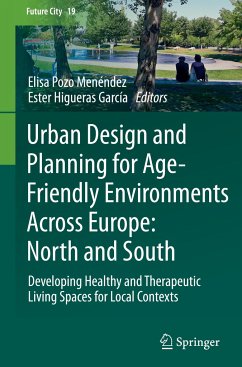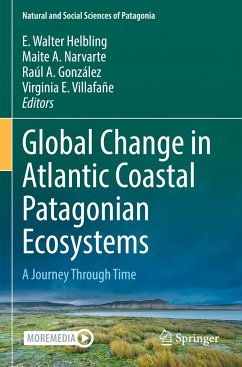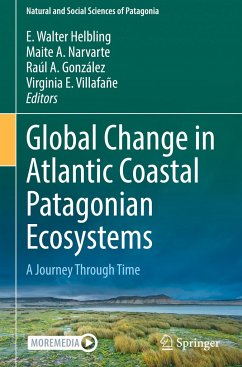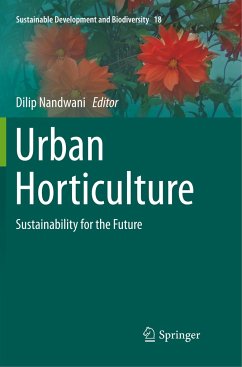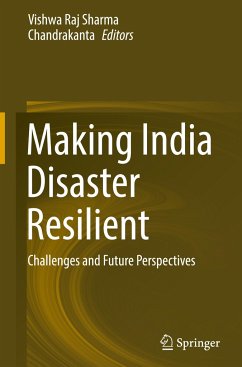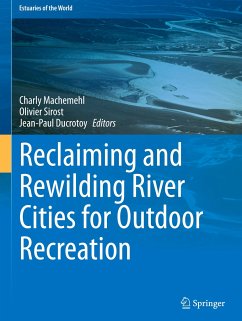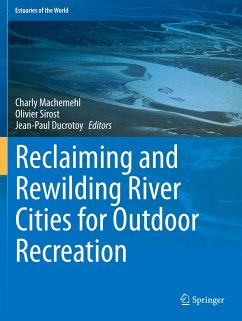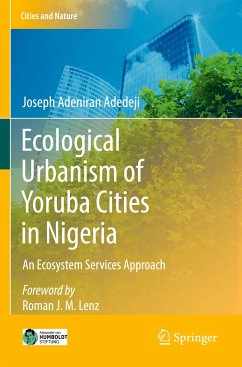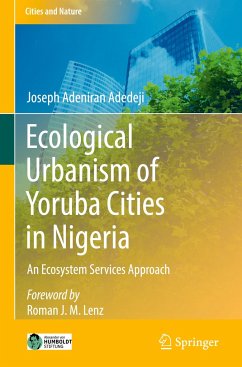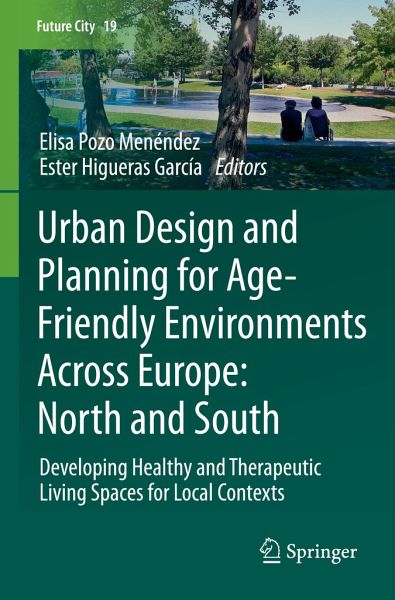
Urban Design and Planning for Age-Friendly Environments Across Europe: North and South
Developing Healthy and Therapeutic Living Spaces for Local Contexts
Herausgegeben: Pozo Menéndez, Elisa; Higueras García, Ester
Versandkostenfrei!
Versandfertig in 6-10 Tagen
113,99 €
inkl. MwSt.

PAYBACK Punkte
57 °P sammeln!
This book represents a multidisciplinary and international vision across different countries in Europe that are facing similar challenges about ageing and quality of life in present cities. It is divided in three main topics from the global context of health in cities and reduction of health inequities to the current research of different study cases, focusing on residential models and the relationship with the built environment. The third chapter illustrates best practices with some study cases from different cities in Europe. Friendlier environments for older people come together with the ne...
This book represents a multidisciplinary and international vision across different countries in Europe that are facing similar challenges about ageing and quality of life in present cities. It is divided in three main topics from the global context of health in cities and reduction of health inequities to the current research of different study cases, focusing on residential models and the relationship with the built environment. The third chapter illustrates best practices with some study cases from different cities in Europe. Friendlier environments for older people come together with the need of innovation, smart and updated technologies, healthier environments and mitigation of climate change.
Health re-appears nowadays as one of the priorities for urban planning and design, not only for the communicable diseases and the effect of the pandemics, but also for the non-communicable diseases, that were also triggering the wellbeing and equity of our cities. Indeed, the Covid-19 pandemic has highlighted health inequities and vulnerabilities of those areas of the city that were already deprived and facing other health problems, such as obesity, diabetes, social isolation, respiratory problems or mental health issues, specifically applying for vulnerable groups. Older adults have been one of the most affected groups from the pandemic's threats and derived consequences. In this context, the care crisis arises intertwined with the design and planning of our cities, where there is an urgent need to regenerate our environments with a perspective of sustainability, inclusion, and health prevention and promotion.
From the global urban challenges to the specific contextualisation of each city and study cases, each chapter offers an updated insight of the main questions that we should consider to address urban planning and design from the perspective of ageing and social inclusion in European cities.
Health re-appears nowadays as one of the priorities for urban planning and design, not only for the communicable diseases and the effect of the pandemics, but also for the non-communicable diseases, that were also triggering the wellbeing and equity of our cities. Indeed, the Covid-19 pandemic has highlighted health inequities and vulnerabilities of those areas of the city that were already deprived and facing other health problems, such as obesity, diabetes, social isolation, respiratory problems or mental health issues, specifically applying for vulnerable groups. Older adults have been one of the most affected groups from the pandemic's threats and derived consequences. In this context, the care crisis arises intertwined with the design and planning of our cities, where there is an urgent need to regenerate our environments with a perspective of sustainability, inclusion, and health prevention and promotion.
From the global urban challenges to the specific contextualisation of each city and study cases, each chapter offers an updated insight of the main questions that we should consider to address urban planning and design from the perspective of ageing and social inclusion in European cities.





